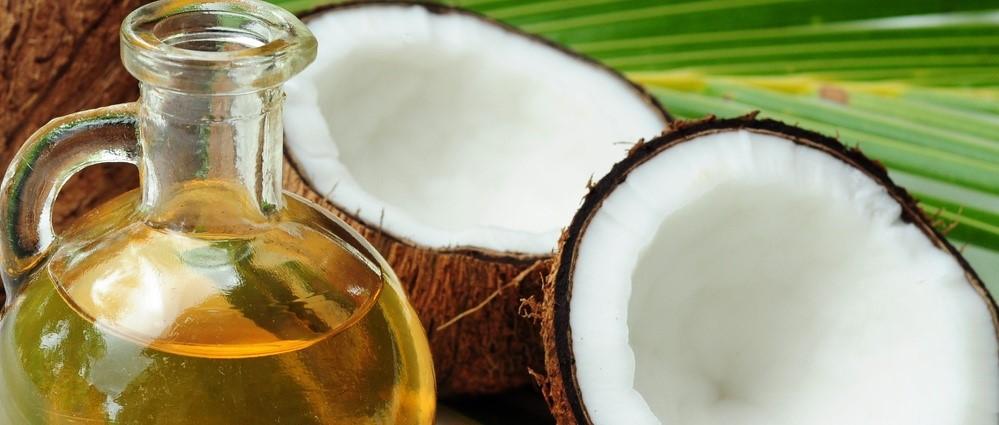
¿Qué remedios naturales ayudan a calmar el eczema?
Peer reviewed by Dr Krishna Vakharia, MRCGPLast updated by Lydia SmithLast updated 23 Feb 2024
- DescargarDescargar
- Compartir
El eccema, que provoca picor y dolor, puede ser muy desagradable y, a menudo, insoportable. Aunque el eczema no tiene cura, los tratamientos convencionales, como cremas y pomadas, pueden aliviar la piel seca e irritada. Sin embargo, algunos productos naturales, como el aceite de coco, también pueden proporcionar un alivio muy necesario.
En este artículo:
Atopic eczema, also called atopic dermatitis, is the most common form of eczema, a condition that causes the skin to become itchy, dry and cracked. Treatments like moisturisers and steroids can help to relieve the symptoms, but many find natural remedies work too.
Natural remedies are products that are made from natural ingredients, such as oils from plants or vegetables. Although some of these products may help to soothe irritated skin, they might not work for everyone.
Before trying any new products on your skin speak to your doctor or skin specialist (dermatologist) to make sure they will not make your symptoms worse or have an affect on any of your treatments.
Seguir leyendo
Best natural remedies
Aceite de coco
Coconut oil is found in many cosmetic and hair products because of its moisturising properties. Natural coconut oil in its purest form - also called virgin coconut oil - may help ease the symptoms of eczema when put onto the affected area of skin. This is because it sits on top of the skin and prevents water loss, as well as moisturising the skin beneath.
One study found that 47% of patients with eczema who put 5 millilitres (ml) of virgin coconut oil to the skin twice daily had moderate improvement in symptoms, and 46% had an excellent response to the product1. A separate study found that coconut oil has anti-inflammatory properties that may help people with eczema2.
Most studies have examined virgin coconut oil to explore the benefits, rather than coconut-scented products with added chemicals that may irritate the skin further.
Dr Derrick Phillips, skin specialist (dermatologist) and British Skin Foundation spokesperson, says that while adults with eczema may benefit from natural remedies, children’s skin is more sensitive. Therefore, you should stick to eczema products specifically formulated for infant skin that have been approved by your doctor.
"Adult skin is generally more resilient than children’s skin and may benefit from the hydrating effects of coconut oil,” says Phillips. “Babies have immature, sensitive skin that is easily irritated. It is important to only use products that have been specifically formulated for infant skin. Coconut and rosehip oils may cause irritation and aggravate infantile eczema, and should be avoided."
Selección de pacientes para Eczema

Salud de la piel, las uñas y el cabello
Todo lo que debe saber sobre el eccema del bebé
Los bebés sufren todo tipo de erupciones y afecciones cutáneas, desde la dermatitis del pañal hasta la costra láctea. La mayoría son inofensivas y desaparecen con los cuidados adecuados, pero el eccema puede ser un problema persistente. ¿Qué es el eccema del bebé y cómo tratarlo?
por Lydia Smith

Salud de la piel, las uñas y el cabello
Eczema atópico
El eczema a veces se denomina dermatitis, que significa inflamación de la piel. Hay distintos tipos de eczema, pero la mayoría son crónicos. El tipo más común es el eczema atópico. En este tipo de eczema existe un patrón típico de inflamación de la piel que provoca los síntomas. Los tratamientos más comunes son los humectantes (emolientes) y las cremas o pomadas con corticoides. Aproximadamente 2 de cada 3 niños con eczema atópico dejan de padecerlo a mediados de la adolescencia.
por el Dr. Doug McKechnie, MRCGP
Colloidal oatmeal
Colloidal oatmeal is a natural product made from ground oats. With its high concentration of starches and beta-glucan - a type of soluble fibre so it dissolves in water - colloidal oatmeal helps the skin retain water. It has been used to soothe skin conditions such as atopic eczema, as well as the itchy rash caused by chickenpox.
Studies suggest that colloidal oatmeal helps to protect the skin barrier - which is weaker in people with eczema - and moisturises the skin while working as an anti-inflammatory3.
Natural colloidal oatmeal comes in powder form which you add to your warm - not hot - bathwater. Soak for 15 minutes and when you’re finished, pat your skin dry. Put on your usual emollient or moisturiser afterwards.
Sunflower oil
Sunflower oil, found in sunflower seeds, can help to produce ceramides, which are fats in skin cells that help keep moisture in your skin4. It also helps to protect the skin barrier and keep bacteria out. It can be put directly onto the skin.
However, not all vegetable oils are good for your skin. Research shows that olive oil can cause redness, rashes and irritation when put onto the skin because it contains irritating fatty acids such as oleic acids. It is also comedogenic, meaning it can clog your pores5.
Hamamelis
Witch hazel, from the witch hazel shrub, is an astringent - something that cleanses the skin, reduces inflammation and has antibacterial properties. Witch hazel dries out the skin, so it isn’t suitable for dry, scaly eczema. However it may help soothe eczema that is wet or weeping to help prevent infections6.
Aloe vera
Aloe vera gel comes from the leaves of the aloe vera plant and is used to treat many skin conditions, including sunburn and dry skin. It can help to cool and moisturise your skin, calm inflammation, provide temporary relief from itching and soothe soreness7. Aloe vera gel can also help broken skin to heal, which can be helpful if your skin is chapped from scratching.
Rosehip oil
Rosehip oil, also known as rosehip seed oil, comes from the seeds of the dog rose plant. Research suggests this oil - when used in its cold-pressed form without any chemical changes made by heat - can have an anti-inflammatory, moisturising effect on the skin, which may make it an effective topical treatment for eczema8.
"However, rosehip oil is rich in vitamin A, which has an exfoliative action that may aggravate inflamed, eczematous skin," adds Phillips.
Para saber más
Historia del artículo
La información de esta página ha sido revisada por médicos cualificados.
23 Feb 2024 | Última versión
26 Jul 2023 | Publicado originalmente
Autores:
Lydia Smith

Pregunte, comparta, conecte.
Explore debates, formule preguntas y comparta experiencias sobre cientos de temas de salud.

¿Se encuentra mal?
Evalúe sus síntomas en línea de forma gratuita